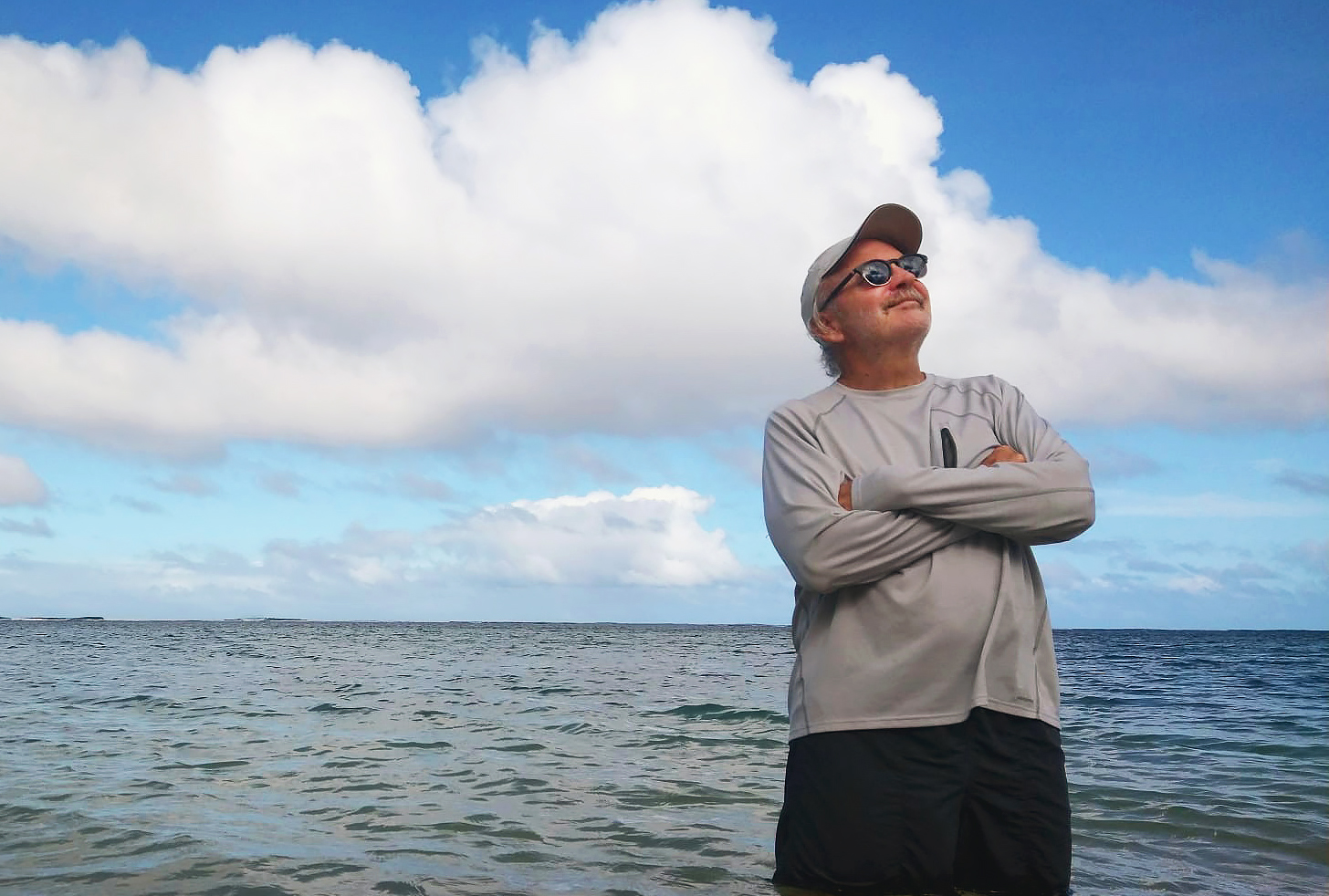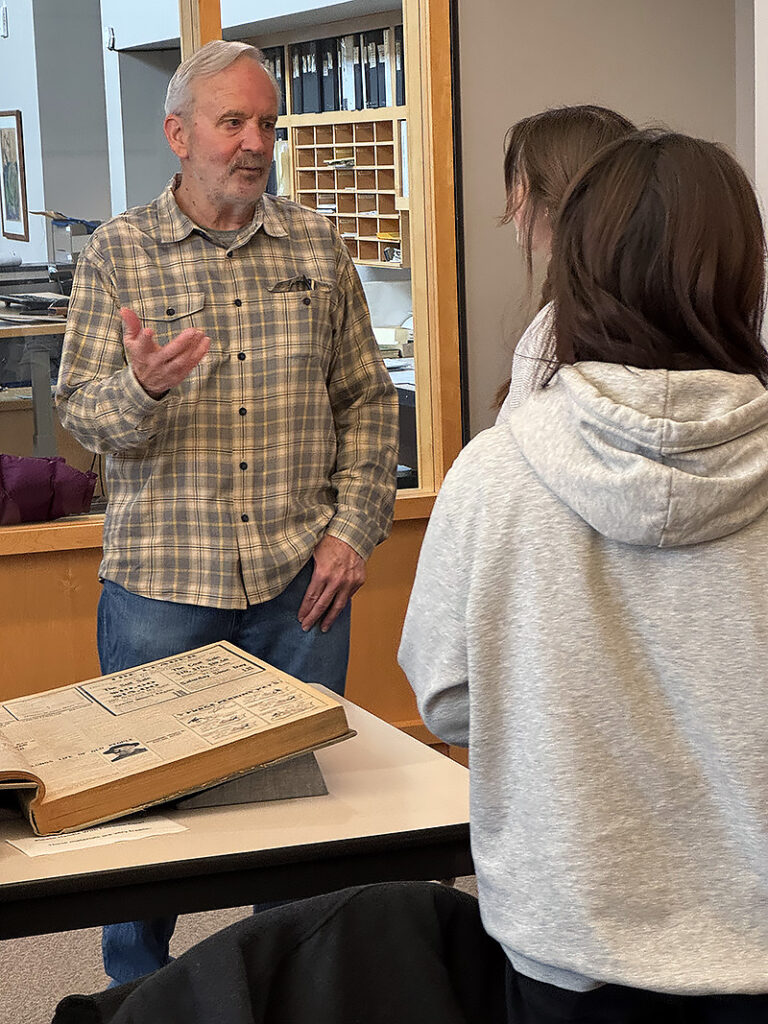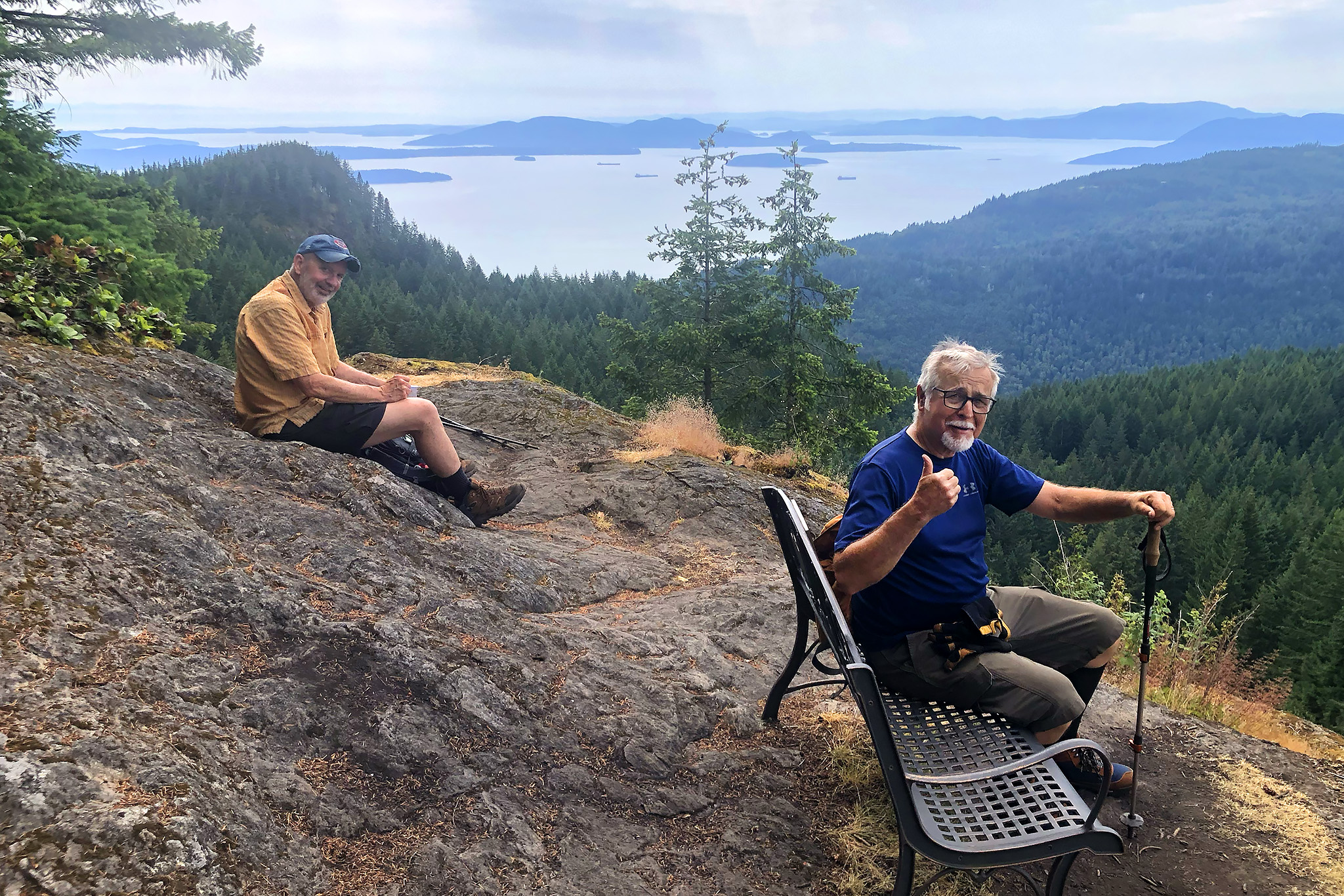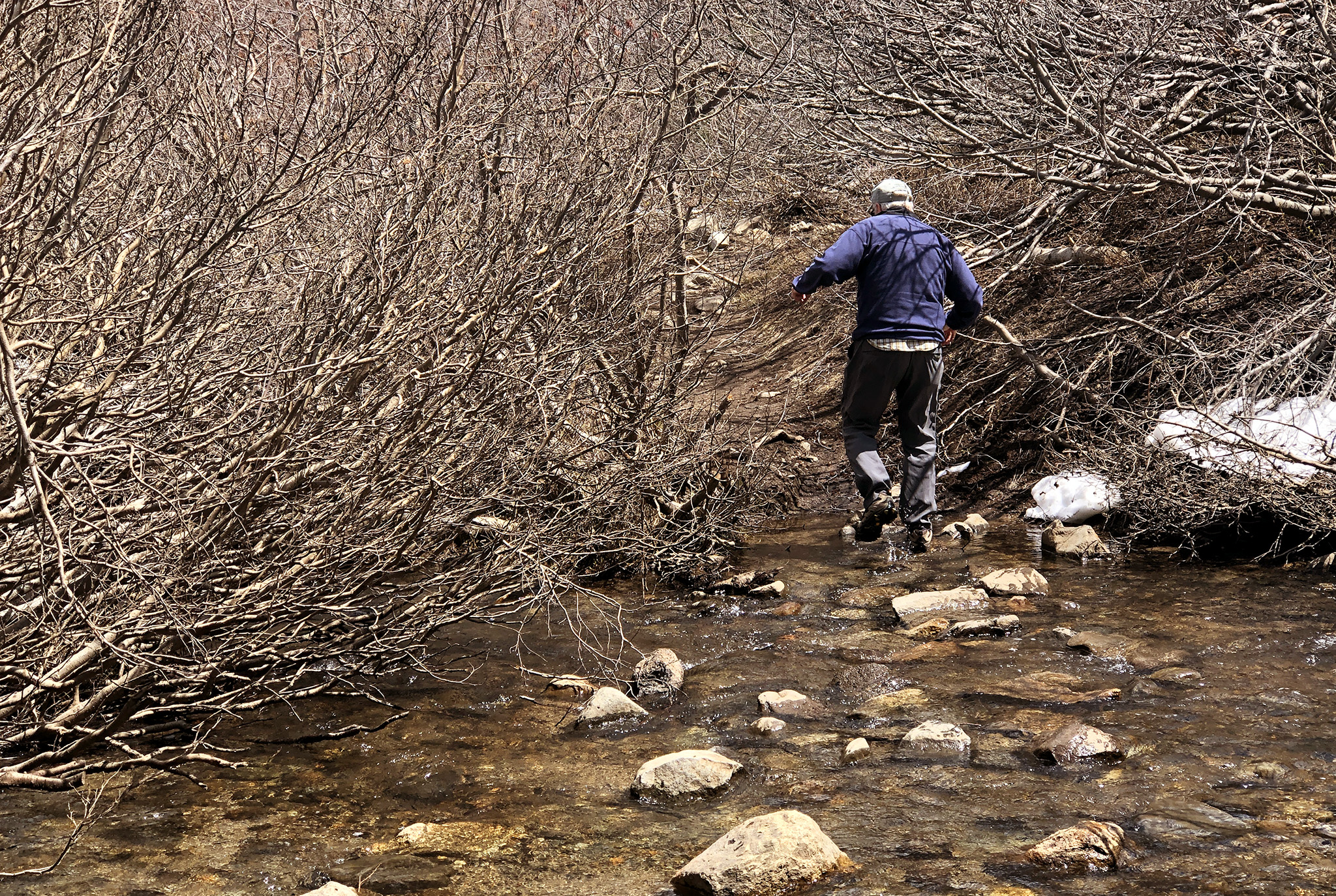Professor John Harris retires after 25 years at WWU

Professor John Harris “looking forward to retirement.” Harris began teaching journalism at Western in 1999 and is retiring at the end of the 2025 Winter quarter. // Photo courtesy of John Harris
From the West Coast Trial to The Front’s newsroom, Harris reflects on some of the highlights from his time in the field
Story by Jenna Millikan
In 1999, new Professor John Harris would walk from The Bellingham Herald to teach his first class, news writing, at Western Washington University.
“I was so nervous that by the time I got up here, I was sweating,” Harris said.
Fast forward to 2025, and Harris makes the much shorter trek from his office to his final class, journalism history. From reporter to professor, Harris welcomes his next adventure: a well-deserved retirement.
Harris made his debut as a guest lecturer in former Professor Dick Beardsley’s news writing class.
“I would talk for 45 minutes, and then he’d say, ‘OK, well that’s great, you know, we’re gonna get on with the class now,’ and I’d be like, ‘but I wanna stay,” Harris said. “I never thought that I would make a career of it until I started teaching, and then I knew right away I wanted to do it at least longer. I didn’t know that I would end up doing it for 25 years.”
If you were a journalism major over the last quarter century, there’s a good chance you took a class with Harris. After all, he taught most of the core journalism courses in the program: photojournalism, ethics, The Front and more.

Harris’s time in the field has left him with many shocking or funny anecdotes. Students could always count on him to break up a lecture with one of his famous stories. The luckier few get to be a starring member of a story, like when former student Carey Rose sold his car to the man accused of the 2009 killing of a Seattle police officer.
“My dad texted me and asked me, ‘Isn’t this that guy you sold a car to in our driveway in this news story?’” Rose said.
Rose was working for The Front, and at first, the paper was hesitant to publish it. Typically, The Front’s advisor lets the students run the publication, but Harris saw the potential and said, “We’re putting this on the front page with a picture.”
“Carey got interviewed, and they ran it on the front page,” Harris recalled. “Then the next day, there were all three television stations from Seattle walking the hallways.”
Rose said that story was a turning point during his time at The Front.
“That story is the reason I got an ‘A’ in that class,” Rose said.
Beyond advising for The Front, Harris has been an instrumental influence to the Journalism Department at Western. Harris began teaching photojournalism before it got its own track within the program.
“I just fell in love with it. I absolutely love it,” Harris said. “It was back when the students would, for each assignment get one roll of film.”
Harris and fellow Professor Peggy Watt helped start the visual journalism track in 2008, he said. In a lead up to promote the VJ program, Harris started the Bellingham Visual Journalism Conference at Western in 2006. For six years the conference attracted both professionals and students to connect and grow their skills. It returned from its hiatus in spring 2023, rebranded as Bellingham Visual, and hosted its second returning conference in the fall of 2024.
“Professor Harris was one of my first true advocates as a photojournalist, having largely introduced me to the craft as a young college student,” said 2011 visual journalism alumn Jordan Stead. “He was instrumental in pushing me to create better work.”
Before his long journalism career, Harris worked in a cornfield in Ohio, unsure of what his next steps would be. That’s when he got the advice to try out journalism from the sports director at his alma mater, Wittenberg University.
“He said, ‘Well, just give it a try, and if you don’t like it, then you can move on to something else,’” Harris said.
He got his first reporting job at his hometown paper, the Coshocton Tribune in Coshocton, Ohio.
“I got bitten by the bug,” Harris said. “I love being a journalist.”
He went on to be a reporter for over 20 years, where he covered various beats from features to crime.
“My last job [before Western] was the best job I ever had,” Harris said. “I was the outdoor writer in Bellingham, Washington, which was like the greatest beat in the country, so I got to do all kinds of really, really fun, cool things.”
Harris hiked the West Coast Trail in Vancouver Island, canoed down the Green River to Colorado and Utah and climbed various local mountains from Helens to Baker all for a story.
He wasn’t the only one who thought being the Bellingham Herald’s outdoor reporter was as cool of a job as you could get.
“[The] West Coast Trail is a really rugged trail, and I was interviewing this girl, she’s like 12 or something, and this other woman who was hiking by herself came out,” Harris said. “She said, ‘So, you’re a reporter, and you’re working, and you’re hiking?’ and I was like, ‘Yeah.” You could tell she was like, ‘Wow! What a great job that is.’”

Fellow professor Scott Terrell met Harris in the ‘90s when they both worked at the Skagit Valley Herald. Terrell was a staff photographer when Harris was hired on as s reporter.
“[Harris] hit it off with the staff because of his engaging personality, willingness to work and dedication to the journalism profession,” he said.
Harris used his interest in storytelling to tell stories that touched the heart of the communities he reported on, Terrell remarked.
“I accompanied him on one assignment to tell a story about the parents of a young, gay man who died of AIDS. The parents belonged to a small community church, where being a gay person was about as mainstream as peanut butter on a bologna sandwich,” Terrell recalled. “John was able to elicit from the grieving parents their sense of loss as well as their love for their son. When the story ran, the Herald subscribers were introduced to people just like themselves — moms and dads who loved their families and would be devastated to lose a child.”
As much as Harris loved being a professor, he couldn’t give up reporting. He continued to write stories during his time at Western. However, he is looking forward to dedicating time to his other passions during retirement.
“People keep asking me what I’m gonna do, and I’m like, ‘I don’t know. I’m not retired yet.’” Harris said. “I’m gonna keep hiking. I do master’s track and field. I’ll keep doing that as long as I’m healthy, and I’ll try to stay involved in the community in some way.”
Even though he is leaving Western, his impact on students extends far past the walls of academia. While Rose no longer works in journalism, he still uses the lessons he learned from Harris.
“I learned a lot from him. Just the way he carried himself through the world and the way he interacted had an impact and changed the way I interact with people,” Rose said. “It just seemed to work really well. I took a lot of inspiration from that.”
Both Stead and Rose said Harris’s brand of considerate feedback was instrumental to crafting their skill.
“He had a way of cutting through the noise, offering feedback that was both direct and constructive,” Stead said. “His guidance wasn’t just about technical skill; he emphasized storytelling, integrity and the responsibility that comes with documenting the world through a lens.”
Now, at the end of his final quarter, if Harris could go back to his first day, he would give himself one piece of advice:
“Just relax. Don’t be so uptight, and don’t expect everything to work perfectly,” Harris said. “That’s one thing I’ve learned over the years, is that it’s like doing a stand-up routine. Some days you kill, and other days you bomb.”

